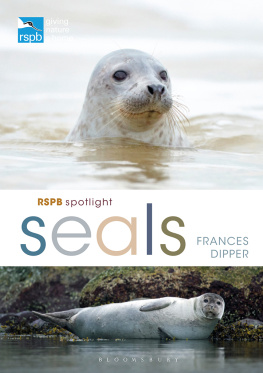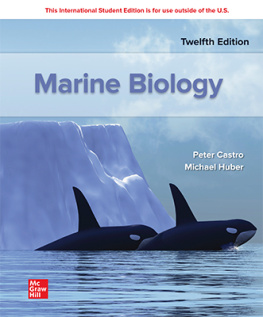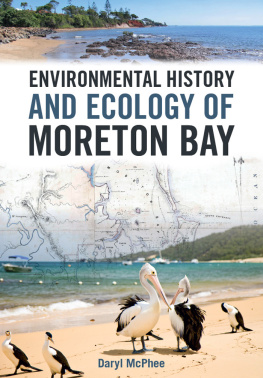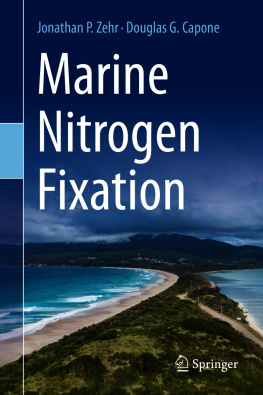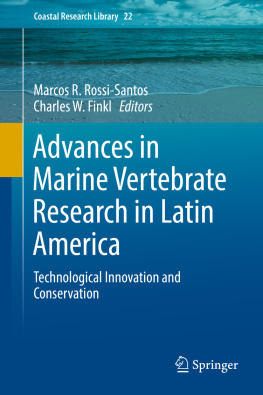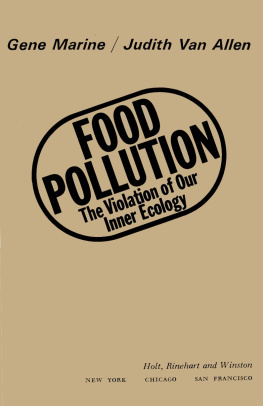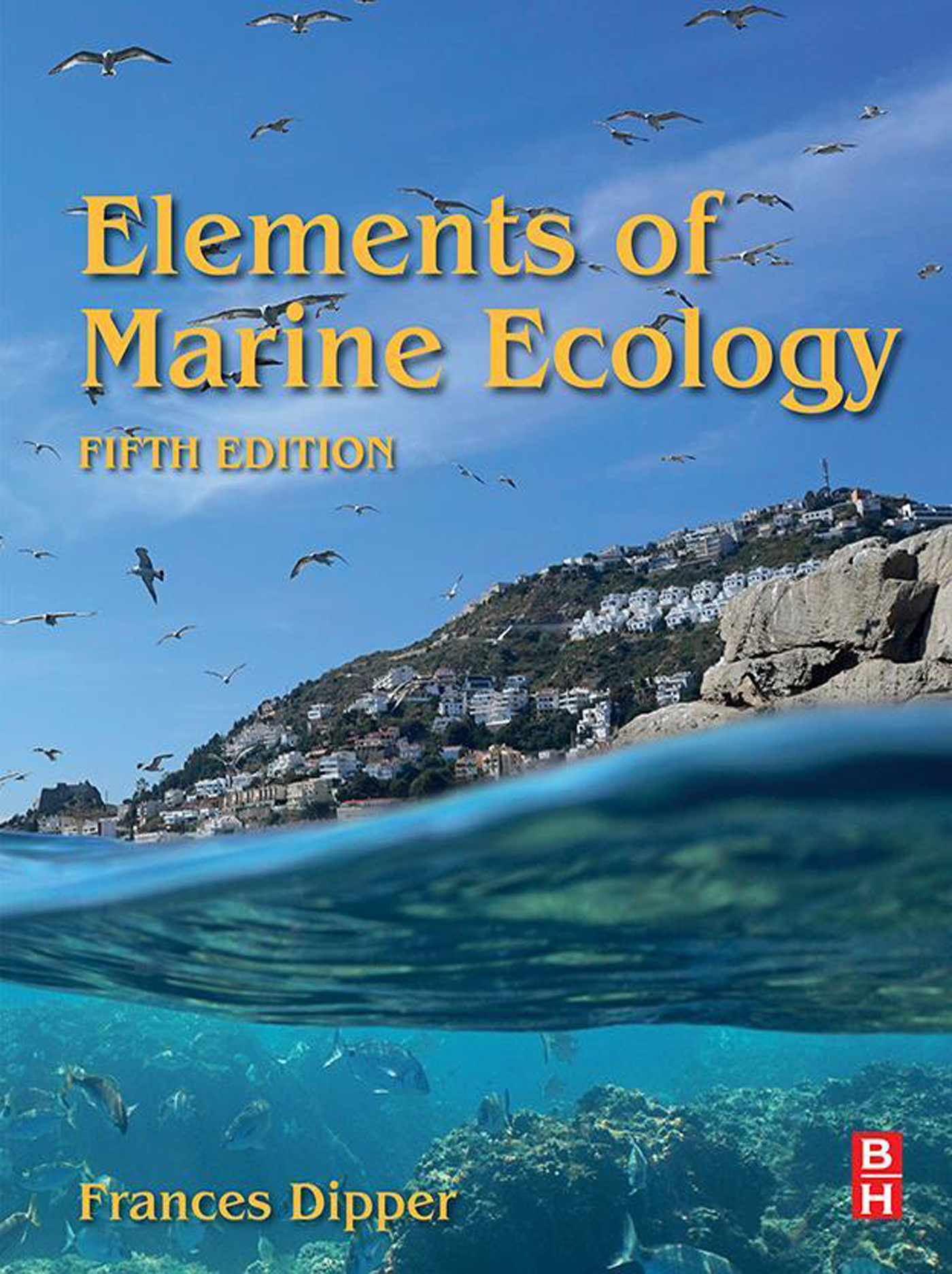Table of Contents
List of tables
- Tables in Chapter 1
- Tables in Chapter 2
- Tables in Chapter 3
- Tables in Chapter 4
- Tables in Chapter 6
- Tables in Chapter 7
- Tables in Chapter 8
- Tables in Chapter 9
List of illustrations
- Figures in Chapter 1
- Figures in Chapter 2
- Figures in Chapter 3
- Figures in Chapter 4
- Figures in Chapter 5
- Figures in Chapter 6
- Figures in Chapter 7
- Figures in Chapter 8
- Figures in Chapter 9
Landmarks
Table of Contents
Elements of Marine Ecology
Fifth Edition
Frances Dipper
Independent Marine Biologist, Cambridge, United Kingdom

Copyright
Butterworth-Heinemann is an imprint of Elsevier
The Boulevard, Langford Lane, Kidlington, Oxford OX5 1GB, United Kingdom
50 Hampshire Street, 5th Floor, Cambridge, MA 02139, United States
First published 1968
Reprinted 1970
Second edition 1972
Reprinted 1975, 1977, 1978
Third edition 1981
Reprinted 1983, 1988, 1992
Fourth edition 1998
Copyright 2022 Elsevier Ltd. All rights reserved.
No part of this publication may be reproduced or transmitted in any form or by any means, electronic or mechanical, including photocopying, recording, or any information storage and retrieval system, without permission in writing from the publisher. Details on how to seek permission, further information about the Publishers permissions policies and our arrangements with organizations such as the Copyright Clearance Center and the Copyright Licensing Agency, can be found at our website: www.elsevier.com/permissions.
This book and the individual contributions contained in it are protected under copyright by the Publisher (other than as may be noted herein).
Notices
Knowledge and best practice in this field are constantly changing. As new research and experience broaden our understanding, changes in research methods, professional practices, or medical treatment may become necessary.
Practitioners and researchers must always rely on their own experience and knowledge in evaluating and using any information, methods, compounds, or experiments described herein. In using such information or methods they should be mindful of their own safety and the safety of others, including parties for whom they have a professional responsibility.
To the fullest extent of the law, neither the Publisher nor the authors, contributors, or editors, assume any liability for any injury and/or damage to persons or property as a matter of products liability, negligence or otherwise, or from any use or operation of any methods, products, instructions, or ideas contained in the material herein.
British Library Cataloguing-in-Publication Data
A catalogue record for this book is available from the British Library
Library of Congress Cataloging-in-Publication Data
A catalog record for this book is available from the Library of Congress
ISBN: 978-0-08-102826-1
For Information on all Butterworth-Heinemann publications visit our website at https://www.elsevier.com/books-and-journals
Publisher: Candice Janco
Acquisitions Editor: Louisa Munro
Editorial Project Manager: Sara Pianavilla
Production Project Manager: Sruthi Satheesh
Cover Designer: Mark Rogers
Typeset by MPS Limited, Chennai, India

Preface
This fifth edition has been completely updated, rearranged and largely rewritten to reflect the current state of our knowledge, with revised figures and the addition of many colour photographs. A considerable amount of new and additional materials has been integrated into each chapter, and a new chapter on nekton has been added. The book provides the materials essential to any student undertaking courses or modules in marine ecology, marine biology and related topics. It also provides information, ideas, reading lists and references from which particular topics can be pursued in greater detail and additional materials sought.
Were he with us today, I hope that Ronald Tait, who wrote the first edition (1968) and for whom I updated the third edition into a fourth expanded edition, would feel that his original aim of presenting marine ecology as a coherent science has been retained. This science of marine ecology must now firmly take into account human impacts on the planet and the ocean. Impacts continue to increase both in type and intensity and have become a part of marine ecology and of the processes that drive marine ecosystems and therefore must also be a part of the study of marine ecology.
Acknowledgements
Frances Dipper would like to thank the following friends, colleagues and organisations for providing photographs and other illustrative materials for this book: Peter Barfield, Sarah Bowen, Fiona Crouch, Marc Dando, David Fenwick, Keith Hiscock, Alison Hitchens, David John, Daniel Jones, Robert Irving, Paula Lightfoot, MBA, MBARI, NASA, Paul Naylor, NOAA, NOC, Rob Spray, Elizabeth Wood and Dawn Watson. Photographs were also sourced from Shutterstock, Alamy and Wikipedia. All photographs are credited in the figure captions. Uncredited photographs are the authors. She would also like to thank Professor Stephen Hawkins for his encouragement in undertaking this project and for helpful suggestions on content and organisation.
Introduction
Just over 70% of our planet is covered by water, and with the exception of a tiny 3% or so of freshwater (in all its forms including ice), this is all saltwater ocean. While the seabed provides a hugely varied and expansive place to live, it is the immense volume of water above it that provides most of the living space on Earth. Although we will never know for certain the exact environment (or environments) where life first began, most evidence points to somewhere in a salt-rich ocean. Whether this was in warm shallow seashore pools or, as some scientists now postulate, around deep-sea hydrothermal vents, the ocean is certainly where it flourished and diversified before finally emerging onto land.
Many different elements are involved in the study of marine ecology, which can be defined as the study of relationships between organisms, their surroundings and each other. At the base of it all are marine species. However, to gain anything like a full understanding of marine species, it is also necessary to look at them within the context of the habitats and whole ecosystem in which they live. An analogy might be made to the very commonwealth game of cricket. It would be impossible to understand the game without knowing the way the cricket ground is laid out and the rules by which the individuals play. An introductory explanation of what an ecosystem is and the elements within it is given here to start readers along the route to an understanding of marine ecology.
1 Ecological definitions
Ecosystem: An ecosystem is the all-encompassing term that brings together all the elements of the system, both living and nonliving, along with the flow of energy through the system. The activities which comprise species lives are dependent upon and closely controlled by their external circumstances, by the physical and chemical conditions in which they live and the populations of other organisms with which they interact. In turn the activities of organisms have effects on their surroundings, altering them in various ways. Organisms, therefore, exist only as parts of a complex entity made up of interacting inorganic and biotic elements, to which we apply the term ecosystem.


